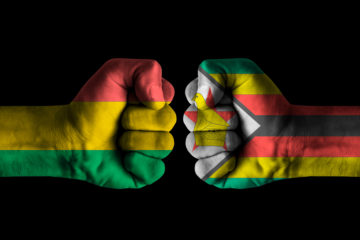
From Zimbabwe to Bolivia: what makes a military coup?
Evo Morales, president of Bolivia since 2006, resigned on November 10 following weeks of demonstrations triggered by a disputed election in October. Morales won the election amid allegations that the result was rigged in his favour. The turning point in Morales’s departure from office was the intervention of Williams Kaliman, commander of the Bolivian armed forces. Speaking at a press conference, Kaliman urged Morales to resign “for the good of our Bolivia”. Morales has since gone into exile in Mexico and the manner of his departure has sparked passionate debate about whether it was tantamount to a military coup. Two years ago this month, the Zimbabwean military placed former President Robert Mugabe under house arrest. Subsequently, SB Moyo, a major …
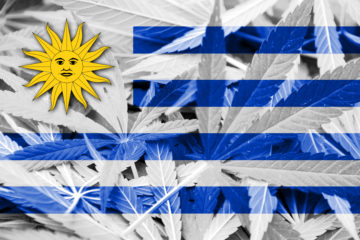
Uruguay’s Government is in danger. Its marijuana legalization may be safe.
When Uruguayans head to the polls for the second-round of the Presidential elections on 24 November, they are not only deciding on the next government but also the future of legal marijuana. In 2013, Uruguay became the first country in the world to legally regulate cannabis from seed to smoke. Despite international acclaim, cannabis reform was highly controversial in Uruguay. Public opinion overwhelmingly rejected the reform and the bill passed both the lower and upper houses of Congress with votes exclusively from the left-of-centre Broad Front. Notwithstanding its past, marijuana legalization’s future seems surprisingly safe, in spite Broad Front being in danger of losing the presidency it has occupied since 2005. In the first round on 27 October 2019, Broad …
How the Recent Protest in Chile Legitimises the Historic Struggle of the Mapuche
Today is the 28th day of the mass protests that have gripped Chile; it is also the one-year anniversary of the killing of Camilo Catrillanca, a young Mapuche leader, by Chilean police. A year ago, popular mobilisation of the scale witnessed today in Chile seemed almost unimaginable, especially after I spent months in the Araucanía region in Southern Chile (or the Wallmapu to the Mapuche), where anything but the most innocuous collective organising has been heavily repressed. While simmering discontent was mixed with fear in the South, in the capital it seemed the frustrations of the student movement (see for example Donoso, 2013) and the return of the right-wing Sebastián Piñera to the presidency in 2018 made an eruption of …
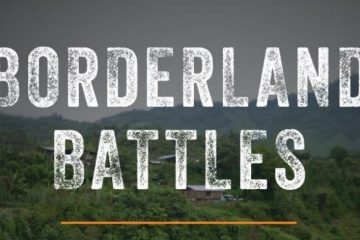
Borderland Battles: Violence, Crime and Governance at the Edges of Colombia’s War
Anette Idler summarizes some of the findings from her new book Borderland Battles, which reveals how violent non-state groups compete for territorial control, co-operate in illicit cross-border activities and replace the state in exerting governance functions in borderlands. Borderlands are like a magnifying glass on some of the most entrenched security challenges of the world. In unstable regions, border areas attract violent non-state groups ranging from rebels and paramilitaries to criminal organisations who exploit their neglect by central governments. These groups compete for territorial control, cooperate in illicit cross-border activities, and substitute for the governance functions usually associated with the state. Studying the Colombian borderlands where armed conflict and organised crime converge demonstrates that the gap between state-centric views on …
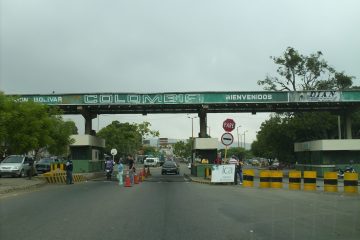
The ‘border effect’ is allowing Venezuela’s crisis to fuel political violence in Colombia
As Venezuela’s crisis continues, so too do its serious repercussions for neighbouring countries. Of the four million Venezuelans that have left the country – the largest migrant crisis in the region’s recent history – more than 1.3 million have arrived in Colombia, on Venezuela’s western border. But this comes at a time when Colombia itself still faces high levels of violence. Though its government signed a peace deal with the FARC guerrilla group in 2016, their counterparts in the National Liberation Army (ELN) have yet to give up arms. Elsewhere, the number of FARC dissidents is rising, and other violent non-state groups – from right-wing paramilitaries to Mexican drug cartels – are jostling for position in the race to fill the void created by demobilisation of …
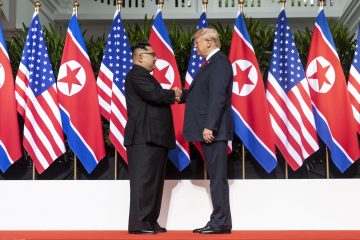
Three reasons why foreign policy negotiations during the 2020 campaign season are a bad idea
“Deals are my art form. Other people paint beautifully on canvas or write wonderful poetry. I like making deals, preferably big deals.” [Donald Trump, The Art of the Deal] If history is any guide, there is reason to hope that President Trump belatedly takes up painting this campaign season. Over the next 18 months or so, as always seems to be the case in American politics, the looming presence of a presidential election will throw up a whole host of impediments to the pursuit of optimal diplomatic agreements abroad, including with China, Afghanistan and North Korea. A brief look back at critical negotiations during the wars in Vietnam and Iraq suggests a crucial lesson: electoral politics and diplomacy do not mix …
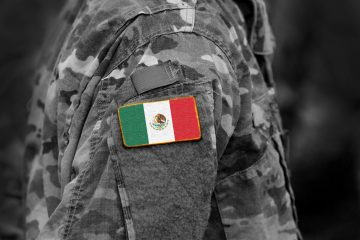
AMLO’s National Guard: More of the Same?
Mexico’s new national guard has been in the news recently because it plays a critical role stemming the flow of Central American migrants. However, it remains “a work in progress,” and has been the subject of severe criticism since its inception. Despite making promises to demilitarize Mexico during his campaign, President Andrés Manuel López Obrador is going forward with continuing to rely on militarized public security under a different name. The Plan Nacional de Paz y Seguridad 2018-2024 – his plan to bring about ‘peace and security,’ entails the creation of a Guardia Nacional (national guard). Of course, improving public security is of vital importance, because the security situation in Mexico is dire: Last year set a new record for …

WILL HISTORY REPEAT ITSELF WITH PRESIDENT TRUMP’S TRADE WAR WITH CHINA?
The iconic statue of the first American postmaster general Benjamin Franklin greets visitors to the Old Post Office Pavilion in the heart of the US capital: Washington, DC. The edifice is now home to the luxurious and controversial Trump International Hotel on Pennsylvania Avenue at the mid-point between the US Capitol Building and the White House. The hotel webpage invites guests to “share tea” in the Benjamin Bar to discuss “social and economic affairs” as it was the “‘established custom’” in colonial America. It further states that “we agree with Franklin” and delight to “serve tea from China.” The page indicates that Franklin had stated “‘at least a million Americans drink tea twice a day,’” Yet, he was “unable to …









